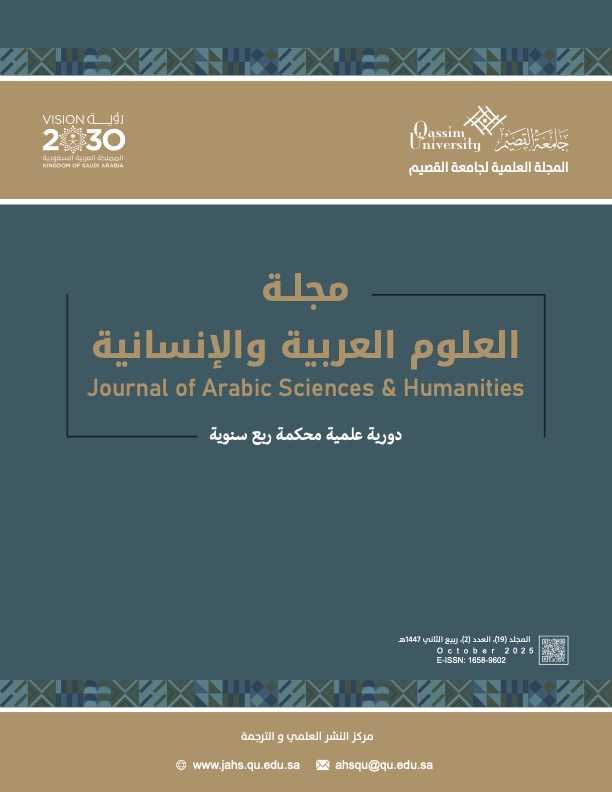Denial and Attribution Strategies in Saudi Judicial Rulings on Cybercrimes: A Forensic Linguistic Analysis
Abstract
This research examines the linguistic strategies employed by defendants in cybercrime cases within the Saudi judicial system to deny responsibility or shift it elsewhere, based on a sample of documented court rulings issued between 1433 and 1435 AH. The rulings reveal recurring patterns of denial, such as claims of shared use of Internet Protocol (IP) addresses or devices, or reliance on moral, religious, and cultural justifications. The study employs a composite theoretical framework that integrates Speech Act Theory, evidentiality, epistemic modality, and critical discourse analysis. The findings indicate that judges give greater weight to direct technical evidence when it conflicts with denial statements, while continuing to interpret judicial discourse through cultural and ethical perspectives. The study concludes that responsibility for digital acts is not built solely on technical analysis but is constructed within an institutional linguistic context, which calls for incorporating forensic linguistic methodology into judicial investigations, particularly in attribution cases where technical ambiguity overlaps with rhetorical defense strategies.
Keywords: Denial, shared use of IP addresses, anonymous attribution, defensive rhetoric, forensic linguistics.

This work is licensed under a Creative Commons Attribution-NonCommercial 4.0 International License.


